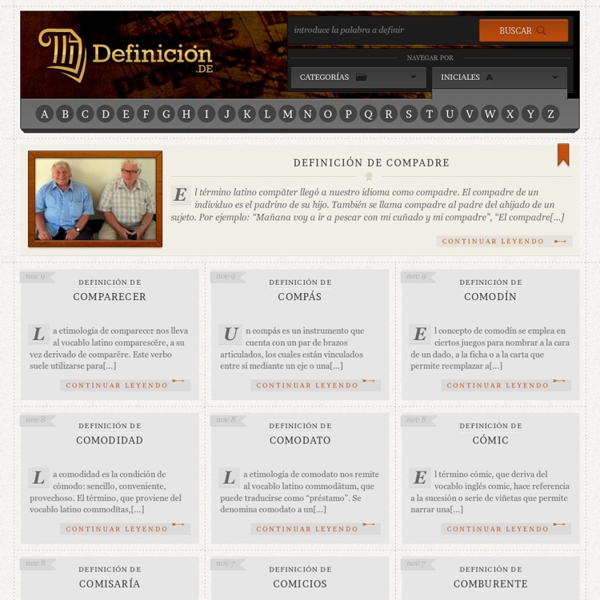



Monografias.com - Tesis, Documentos, Publicaciones y Recursos Educativos. Qué Cómo Quién Segundo El segundo es la unidad de tiempo en el Sistema Internacional de Unidades, el Sistema Cegesimal de Unidades y el Sistema Técnico de Unidades. Su símbolo es s (adviértase que no es una abreviatura: no admite mayúscula, punto ni plural). Hasta 1967 se definía como la fracción 1/86 400 de la duración que tuvo el día solar medio entre los años 1750 y 1890 y, a partir de esa fecha, su medición se hace tomando como base el tiempo atómico. Según la definición del Sistema Internacional de Unidades: Un segundo es la duración de 9 192 631 770 oscilaciones de la radiación emitida en la transición entre los dos niveles hiperfinos del estado fundamental del isótopo 133 del átomo de cesio (133Cs), a una temperatura de 0 K.[1] Origen etimológico de segundo[editar] La palabra segundo proviene del latín sequire (seguir); sin embargo, su uso para denominar a la medida de tiempo es similar al origen del término minuto. Uso correcto del símbolo en textos[editar] Múltiplos del SI[editar] Véase también[editar]
Punctuation - Grammar & Style - Legal Writing Center - CUNY School of Law Punctuation is one component of writing that people seldom think about or notice -- except when it is wrong. At their worst, misused punctuation marks -- commas, semicolons, quotation marks, and the rest -- may muddle the meaning of your sentences, leaving your reader confused and frustrated. Even less egregious errors -- say, a missing or misplaced apostrophe -- can give your written work an appearance of carelessness and lack of attention. Purdue University's Online Writing Lab has an excellent section on punctuation of all kinds. Quotation marks are required whenever you are giving the exact words spoken or written by another person. Prof. Loucas said, "Prof. (For those of you familiar with British English conventions, this is a change in style.) The rules for using other punctuation with quotation marks are fairly straightforward. The defense attorney shouted, "I object to that question!" The defense attorney raised an objection: "That question is not relevant!" Possessives Contractions
eduCanon Create, Edit, Share Paste video URLs from YouTube, TeacherTube, SchoolTube, Shmoop, and elsewhere. Add rich, dynamic questions during the video, making a 'bulb'. Share with colleagues, classes, and students through embed codes or links. Find, Collaborate, Tweak Search tens of thousands of pre-made lessons or master units.* Download a copy. Manage, Monitor, Integrate Create up to 8 classes. Higher-Blooms, Easier LTI integration with Blackboard, Moodle, Pearson, and more.* Export gradesbook, print worksheets.* Assign students to create lessons. *Unlimited usage of functionality is included in premium package.
Library As of July 1, 2013 ThinkQuest has been discontinued. We would like to thank everyone for being a part of the ThinkQuest global community: Students - For your limitless creativity and innovation, which inspires us all. Teachers - For your passion in guiding students on their quest. Partners - For your unwavering support and evangelism. Parents - For supporting the use of technology not only as an instrument of learning, but as a means of creating knowledge. We encourage everyone to continue to “Think, Create and Collaborate,” unleashing the power of technology to teach, share, and inspire. Best wishes, The Oracle Education Foundation ¿Qué es Símbolo? - Su Definición, Concepto y Significado Símbolo, proveniente del latín “Simbŏlum” es una representación icónica, con la que se busca inspirar ideas y principios de lo que en realidad representa, el símbolo, a diferencia del signo, que es una imagen que puede ser aplicada en una función, representa mediante imágenes algunas veces abstractas, cual es el propósito de la organización a la que representa. El símbolo puede ser un objeto con el cual se indique una cualidad, por ejemplo: en derecho, en los juzgados, el juez usa un martillo de madera, símbolo de fuerza, de orden, de arma, ya que con un martillo se solidifican clavos en una estructura, por lo que el sonido hace un llamado de atención a quienes lo requieran. Los símbolos siempre llevan semejanza con el nombre, por esa razón se les puede considerar una especie de identificación gráfica, ya que guardan estrecha relación con la función, con el principio o con el orden establecido, crean un vínculo útil entre la organización y quien lo interpreta como usuario.
TFL home | Typography for Lawyers